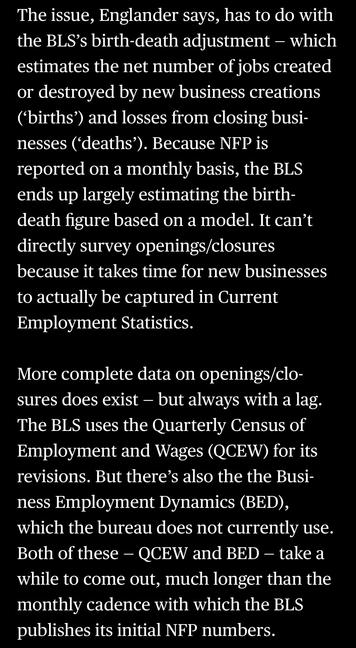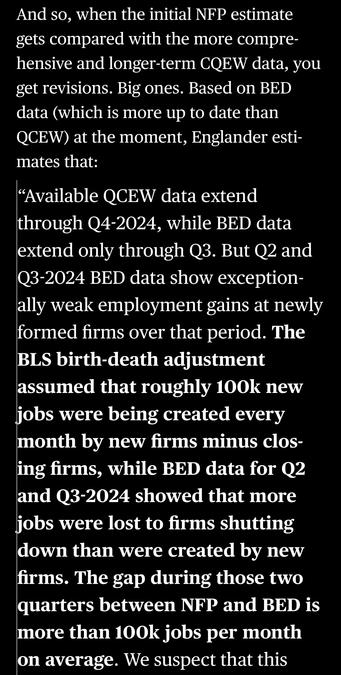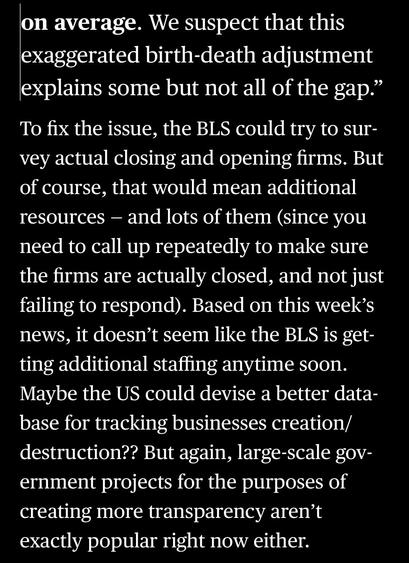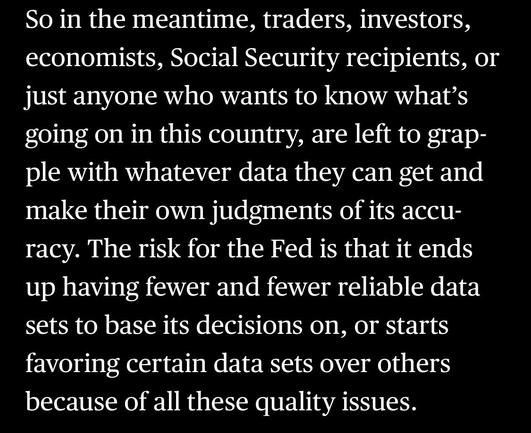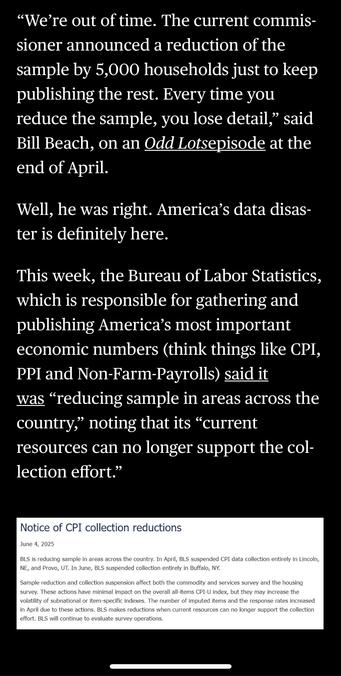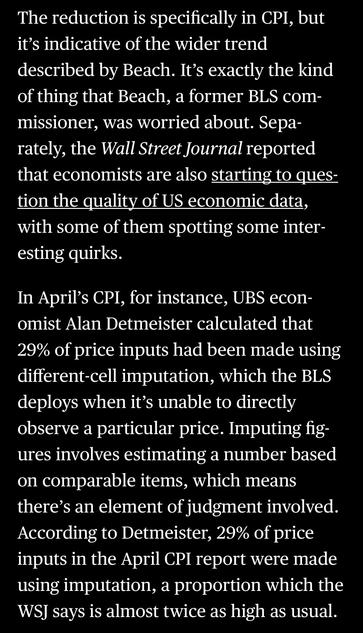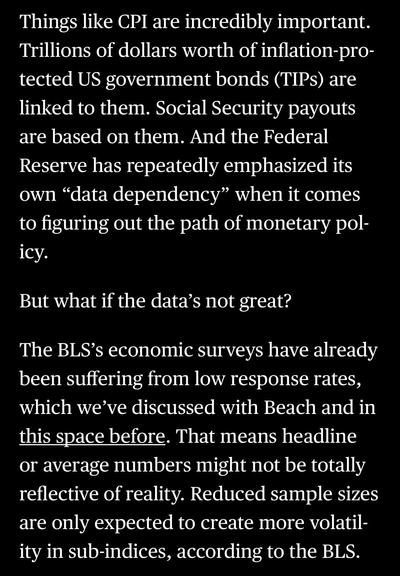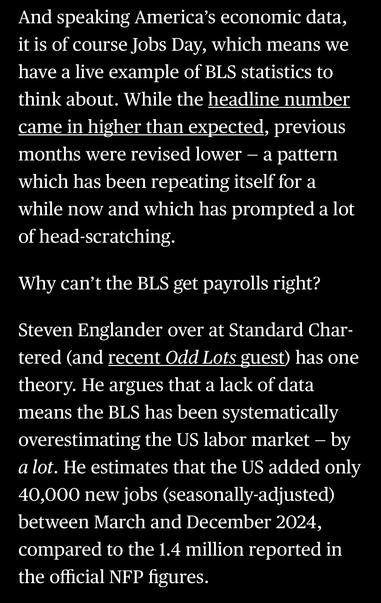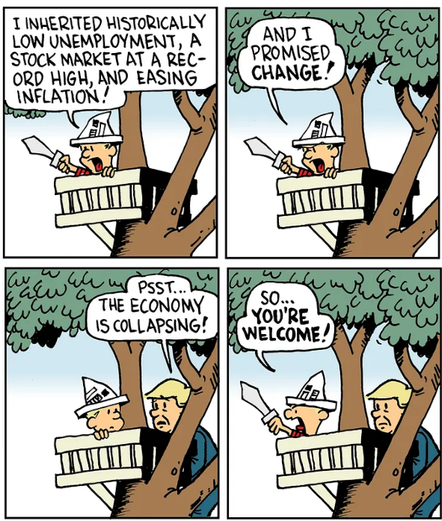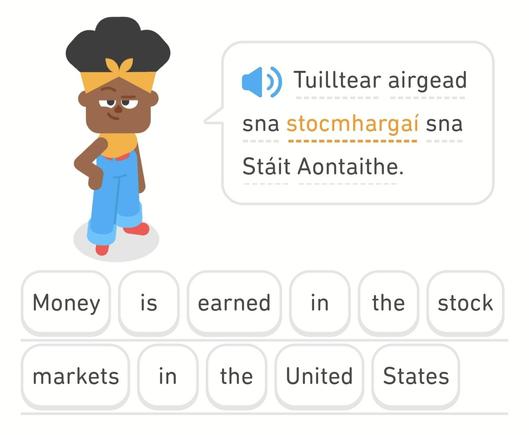https://www.alojapan.com/1292245/japan-trade-negotiator-akazawa-says-he-made-progress-in-u-s-tariff-talks-2/ Japan trade negotiator Akazawa says he made progress in U.S. tariff talks #AsiaEconomy #BusinessNews #Japan #JapanNews #news #trade #Trumponomics Ryosei Akazawa, Japan’s economic revitalization minster, speaks to members of the media at the Japanese embassy in Washington, DC, US, on Friday, May 30, 2025. Bloomberg | Bloomberg | Getty Images Japan had made some progress in a fifth round of trade talks with U.S. officials aimed at ending tariff…
#Trumponomics
When you lack data due to self-imposed budget and staffing restrictions, why not estimate economic numbers—
/2 of 2
#USA #USeconomy #USecon #economics #trump #trumponomics
(Bloomberg)
“…headline or average numbers might not be totally reflective of reality.”
/1 of 2
#USA #USeconomy #USecon #economics #trump #trumponomics
(Bloomberg)
The #US #housingMarket will be hit very hard with high #inflation, high #tariffs, and high #interestRates. … all to come in the next six months! #forecast #trumponomics
Bond vigilantes emerge as Trump's formidable opponent, causing market turbulence and forcing policy reconsideration amid concerns over Trumponomics and its impact on U.S. economy
#YonhapInfomax #BondVigilantes #Trumponomics #USTreasuries #InterestRates #DollarIndex #Economics #FinancialMarkets #Banking #Securities #Bonds #StockMarket
https://en.infomaxai.com/news/articleView.html?idxno=60485
Africa: Trumponomics - Renowned US Economist Predicts $10tn Global Wealth Loss, Says Trump's Tariffs Childish: [This Day] Abuja -- World renowned Economist, Jeffrey Sachs, has launched a scathing attack on Donald Trump's tariff strategy, describing the US president's trade policies as childish and so "delusional" that even Mickey Mouse would know better. http://newsfeed.facilit8.network/TKJFqR #Trumponomics #JeffreySachs #Economics #GlobalWealth #TradePolicies
#Delusional #Nonsense #Trumponomics #Tariffs #ImportTaxes #Recession #inflation #Stagflation
Soviet leaders also bragged incessantly about how awesome their system was and how wonderful the lives of the people thanks to their wise policies, as nothing worked and everything got worse and worse month after month for decades.
#ImpeachTheFascist #uspol #USPolitics #journalism #media #socialmedia #immigrantRights #MakeThemFight #Hardball #impeach #impeachment #DoSomething #NoKings #marker
“Trumponomics isn’t just bad policy—it’s a breeding ground for corruption and market manipulation. The wealthy get richer while everyday Americans foot the bill. Time to expose how these MAGA-driven moves are rigging the system. #Corruption #MAGA #Trumponomics” www.moneytalksnews.com/slideshows/t...
Trump, Trumper, Trumpest: 9 Fi...
The Rock-Solid Case For Impeachment in 2 minutes.
#ImpeachTheFascist #uspol #USPolitics #journalism #media #socialmedia #immigrantRights #Hardball #impeach #impeachment #DoSomething #NoKings #NoDo #Trumponomics #Tariffs #Recession #Trump #Murkowski #Crash #Kilmar
Not anymore, not when Donald Trump is president.
#trump #trumpfailure #trumponomics #stock #stockmarket #100daysofGaeilge #duolingo
Trump's 'steel mentality' rooted in supply-side economics, playing golf amid market crash while advisors defend tariffs as path to economic growth
#YonhapInfomax #Trumponomics #SupplySideEconomics #MarketCrash #Tariffs #EconomicAdvisors #Economics #FinancialMarkets #Banking #Securities #Bonds #StockMarket
https://en.infomaxai.com/news/articleView.html?idxno=58366
Le dollar n’a pas la forme 🥴. Depuis le 20 janvier 2025, il a perdu 7,2 % face à l’euro 📉. À l’époque, 1 dollar valait 0,9596 euro 💵➡️💶. Aujourd’hui ? À peine 0,8906 euro…
Dernière lubie géniale de Trump ? Suspendre par surprise certains tarifs douaniers 🎩✨. les marchés paniquent 🐂➡️🐻, le billet vert chancelle 🤕.
Mais tout est sous contrôle. Du moins, dans l’univers parallèle où l’imprévisibilité est une stratégie économique de haut vol 🚀🤡.
#DollarGate #Trumponomics #MerciDonald #Économy2025
#DataCentres ... in ... SPAAAAAACE!!!!! is the most ridiculous news story so far this year. Even more ridiculous then #Trumponomics or #MichaelFabricant's glorious hair. https://www.bbc.co.uk/news/articles/cjewvpkw7weo If you need so much computering that you can't just use a small modern computer then you're going to need cooling for that. Cooling takes about 45% of the power budget for a DC on Earth, and is MUCH HARDER in a vacuum where you can't use the atmosphere or a river as a heat sink.
Trumponomics fuels chaos! Paul Krugman critiques Trump's economic policies, arguing ongoing protectionist tariffs harm the U.S. economy, increase uncertainty, and threaten financial stability. Businesses hesitate to invest amid unpredictable changes, revealing the inherent weakness in Trump's leadership. The potential for a financial crisis looms large, creating risks for both domestic and global markets. Discover more insights in the full article. [Link to full article](https://paulkrugman.substack.com/p/trump-is-stupid-erratic-and-weak) #Trumponomics #Economy #Tariffs #FinancialStability
There is a trace of logic if someone who builds and bankrupts casinos for a living goes out and turns the whole world economy into one big casino. Rien ne va plus! #Trumponomics
I go away for a few hours & then this happens
Anyone tell the penguins they can keep their fish?
#Trumponomics
https://x.com/pleightx/status/1910035179298582614?s=46&t=hjYVjCqmaAvU8tWNPdknIA
Tariff on
Tariff off
Tariff on
Tariff off
Tariff on
Tariff off
Tariff on
Tariff off
Tariff on
Tariff off
Tariff on
Tariff off
Tariff on
Tariff off
Tariff on
Tariff off
Tariff on
Tariff off
Tariff on
Tariff off
Tariff on
Tariff off
Tariff on
Tariff off
Tariff on
Tariff off
Tariff on
Tariff off
Tariff on
Tariff off
Tariff on
Tariff off
Tariff on
Tariff off
Tariff on
Tariff off
Tariff on
Tariff off
Tariff on
Tariff off
Tariff on
Tariff off
Tariff on
Tariff off

